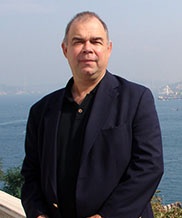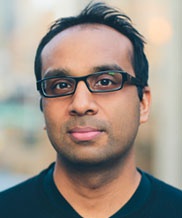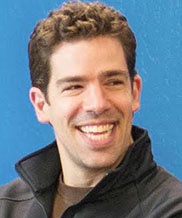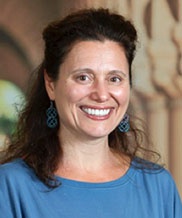Trust and Transparency in Personalized Algorithms
Trust, Transparency & Technology
Spring Panel Series
CERAS 101, Stanford University
Tuesday June 5
4:30pm-6:00pm
Free & Open to the Public As Space Permits
Information technologies are expanding the parameters of media, pervading our environments, our systems, and our daily lives. The direct connection between people and their data is now brokered via algorithms. Machine learning, pattern recognition, and sensor driven applications play out behind the scenes. Understanding the conditions that help to build trust is a worthy challenge for the open, non-linear, multi-faceted, and globally connected world we live in.
Trust, Transparency & Technology is a series of panel discussions that delve into the research, concepts and tools that may help create open collaborations in a world of automated intelligent agents, algorithm-driven interactions, and machines that can learn what humans can’t explain.
Please join us as we bring together a diverse set of thought leaders from the Stanford community and industry to explore perceptions of trust, transparency and technology – in interdisciplinary research, human and AI collaborations, personalized algorithms and multi-sided data markets. Topics will include:
Trust and Transparency in Interdisciplinary Research Collaborations
Trust and Transparency in Human – AI Collaborations
Trust and Transparency in Personalized Algorithms
Never Miss An Event; Join Our Email Community
Presenters

Dave Cavander is a mediaX Distinguished Visiting Scholar with an extensive career in marketing science that spans spans antitrust litigation, pharmaceuticals, retail and AI for brands, including Adobe, Best Buy, Mars and Eli Lilly. Since retiring as Principal Scientist at Adobe, Dr. Cavander has worked on projects including a prototype AI learning cloud app for medical diagnostics and evidence-based decisions, and a multi-player B2B decision making coalition game for major retailers. Dr. Cavander has taught marketing science at UCLA and Berkeley and holds a number of patents in decision algorithms. He received his PhD in Mathematical Economics and Econometrics from the University of Iowa.

Sharad Goel is assistant professor in Management Science & Engineering, and, by courtesy, in Computer Science and Sociology at Stanford University. He is also Executive Director of the Stanford Computational Policy Lab, a team of researchers, data scientists, and journalists that addresses policy problems through technical innovation. Dr. Goel’s primary area of research is computational social science, an emerging discipline at the intersection of computer science, statistics, and the social sciences. His work applies modern computational and statistical techniques to understand and improve public policy. Recent topics include: stop-and-frisk, tests for racial bias, algorithmic fairness, swing voting, election polls, voter fraud, filter bubbles, and online privacy. Sharad holds a Ph.D. in Applied Mathematics from Cornell University. Before joining the Stanford faculty, he worked at Microsoft Research in New York City.

Dylan Arena is Chief Learning Scientist at Kidaptive, which he co-founded in 2011. Kidaptive provides an ML-based Adaptive Learning Platform (ALP) for personalized, playful, lifelong learning. Dylan’s background is in cognitive science, philosophy, and statistics, as well as game-based learning and next-generation assessment. Dylan holds a B.S. in Symbolic Systems, an M.A. in Philosophy, an M.S. in Statistics, and a Ph.D. in Learning Sciences and Technology Design (in the program for Developmental and Psychological Sciences), all from Stanford University.

Karina Alexanyan is the Member Benefits Manager with mediaX at Stanford University and moderator of the panel series. Dr. Alexanyan’s research background is in global social media networks, technology, and education. She has consulted for leading academic, corporate and non-profit clients, including Stanford, Harvard and Columbia Universities. Alexanyan holds a PhD in Communications from Columbia University, a M.A. in Communication from NYU and a BA in Linguistics and Modern Languages from the Claremont Colleges.